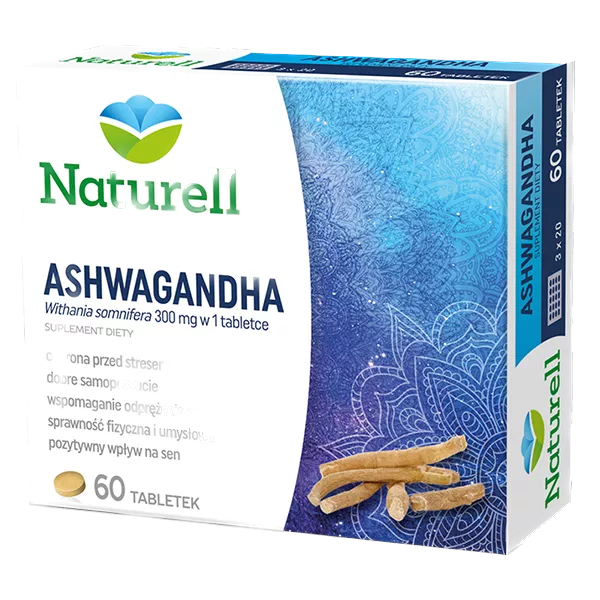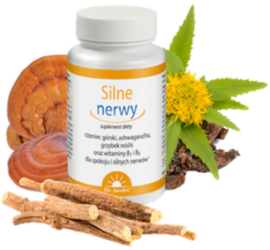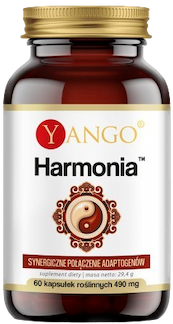Best ashwagandha for men (testosterone, libido, men's health, more)
Ashwagandha can naturally support men's health in many ways - find out how it works.


Learn more about our editorial process
.

Learn more about our editorial process
.

Learn more about our editorial process
.

Learn more about our editorial process
.
Why you can trust us
Articles on Natu.Care are written based on scientific research, data from government websites and other reliable sources. The texts are written in cooperation with doctors, nutritionists and other health and beauty experts. Articles are reviewed before publication and during significant updates.
.Learn more about our editorial process
.Information about advertisements
Content on Natu.Care may contain links to products from the sale of which we may receive a commission. When creating content, we adhere to high editorial standards and take care to be objective about the products discussed. The presence of affiliate links is not dictated by our partners, and we select the products we review ourselves completely independently.
.Learn more about our terms and Conditions
.As far back as a few thousand years ago, Ayurvedic medical practitioners argued that the use of ashwagandha adds strength worthy of a workhorse, improves sex drive and reduces stress.
We looked at what the latest scientific research suggests about the effects of ashwagandha on men's health. Find out if it's a natural booster of the father-in-law that will make you lift more at the gym or have a great night's sleep... because you're finally sleeping well.
From this article you will learn:
- How ashwagandha affects men's health. .
- What scientific research suggests. .
- How much and how long to use ashwagandha to feel the effects.
- How the effects of ashwagandha can be felt.
See also:
- Ashwagandha
- Ashwagandha - contraindications
- Ashwagandha - side effects
- Ashwagandha - what not to combine with? .
- Ashwagandha KSM-66 - what is it?
- Ashwagandha - morning or night?
- Ashwagandha - when does it start working?
- Ashwagandha for sleep, sex, stress - dosage
Ashwagandha - what is this plant?
.
Ashwagandha, also known as Indian ginseng or vashwagandha is a plant popular in Ayurvedic medicine, used to, among other things, increase vitality, reduce stress, improve memory and concentration and support sleep qualityand.
.
It belongs to the group adaptogens, i.e. plants that induce physiological, morphological or biochemical changes in the human body through bioactive constituents such as alkaloids, vitanolides, sterols and lactones .
These compounds have been shown in scientific studies to exhibit antioxidant, antimicrobial, anti-inflammatory, anticancer and analgesic activities, among others. They affect stress regulation and improve cognitive functionand.
The balance of bioactive compounds contained in ashwaganda is important, as different components can act synergistically or complementarily, allowing the plant to exhibit a broad spectrum of biological actions.
How does ashwagandha help men?
.
For thousands of years, Ayurvedic medicine has recommended ashwagandha to men to improve vitality, libido, fitness and health. The plant is said in Eastern medicine to give strength and vitality to a horseand. And what do modern researchers suggest?"
Ashwagandha Naturell
Product description
Extract from ashwagandha leaves and root will boost energy, overcome fatigue, improve memory and concentration. The product is recommended during periods of increased physical tension or intense physical activity.
Pros and cons
Extract from ashwagandha leaves and root will boost energy, overcome fatigue, improve memory and concentration. The product is recommended during periods of increased physical tension or intense physical activity.
Additional information
Extract from ashwagandha leaves and root will boost energy, overcome fatigue, improve memory and concentration. The product is recommended during periods of increased physical tension or intense physical activity.
Dr. Jacob's Strong Nerves
Product description
Dr. Jacob's Strong Nerves is a dietary supplement thatóry supports the nervous system and helps the body to cope with stress. Thanks to the synergistic combination of beneficial ingredientsós, Strong Nerves relieves anxiety symptoms, increases mental and physical stamina, and supports concentration.
The benefits of this supplement are particularly important for peopleóly exposed to chronic stress, those with sleep problems or employeesóly. It is worth mentioning that the supplement can also help to improve mental well-being and support the immune system.
.All this makes Dr. Jacob's Strong Nerves an excellent remedy for anyone looking for comprehensive support for their nervous system and overall mental performance.
Pros and cons
Dr. Jacob's Strong Nerves is a dietary supplement thatóry supports the nervous system and helps the body to cope with stress. Thanks to the synergistic combination of beneficial ingredientsós, Strong Nerves relieves anxiety symptoms, increases mental and physical stamina, and supports concentration.
The benefits of this supplement are particularly important for peopleóly exposed to chronic stress, those with sleep problems or employeesóly. It is worth mentioning that the supplement can also help to improve mental well-being and support the immune system.
.All this makes Dr. Jacob's Strong Nerves an excellent remedy for anyone looking for comprehensive support for their nervous system and overall mental performance.
Additional information
Dr. Jacob's Strong Nerves is a dietary supplement thatóry supports the nervous system and helps the body to cope with stress. Thanks to the synergistic combination of beneficial ingredientsós, Strong Nerves relieves anxiety symptoms, increases mental and physical stamina, and supports concentration.
The benefits of this supplement are particularly important for peopleóly exposed to chronic stress, those with sleep problems or employeesóly. It is worth mentioning that the supplement can also help to improve mental well-being and support the immune system.
.All this makes Dr. Jacob's Strong Nerves an excellent remedy for anyone looking for comprehensive support for their nervous system and overall mental performance.
Solve Labs Brain Tech Memory & Focus, adaptogens, capsules

- Composition: bacopa monieri, gotu kola, rhoiola rosea, ginseng, zinc gluconate, choline, vitamin B6
- Form: capsules .
- Packaging: 30 or 60 capsules .
- Dose: 2 capsules daily .
- Sufficient for: 10 or 20 days .
Product description
Adaptogens, vitamins and minerals to support the mózg and nervous system. Brain Tech has been developed for people needing long-lasting concentration, improved learning ability, memory and increased resistance to stress.
Pros and cons
Adaptogens, vitamins and minerals to support the mózg and nervous system. Brain Tech has been developed for people needing long-lasting concentration, improved learning ability, memory and increased resistance to stress.
Additional information
Adaptogens, vitamins and minerals to support the mózg and nervous system. Brain Tech has been developed for people needing long-lasting concentration, improved learning ability, memory and increased resistance to stress.
Adaptogens, vitamins and minerals to support the mózg and nervous system. Brain Tech has been developed for people needing long-lasting concentration, improved learning ability, memory and increased resistance to stress.
YANGO, Harmony, adaptogens, capsules
Product description
This dietary supplement contains a synergistic combination of 5 plant extracts that positively influence the body's homeostasis and well-being. The product is recommended for people living under stress, tension and those who are physically active.
Pros and cons
This dietary supplement contains a synergistic combination of 5 plant extracts that positively influence the body's homeostasis and well-being. The product is recommended for people living under stress, tension and those who are physically active.
Additional information
This dietary supplement contains a synergistic combination of 5 plant extracts that positively influence the body's homeostasis and well-being. The product is recommended for people living under stress, tension and those who are physically active.
Product tiles contain affiliate links. As An Amazon Partner, I earn from qualifying purchases.
Scientific research suggests that ashwagandha:
Improves testosterone
.
Ashwagandha may be a natural testosterone booster -so suggests several scientific studiesand.
Adequate levels of this testosterone in men affectand:
.
- .
- sexual health, .
- sperm production, .
- building muscle mass, .
- proper bone density, .
- stress and well-being, .
A 2022 study on a group of 50 men found that the use of 600 mg of ashwagandha extract daily for 8 weeks raised testosterone levels by 17% and contributed to improved subjective satisfaction with sexual healthand.
The placebo group reported a 1.45% increase in testosterone and slightly lower satisfaction with sexual function .
.
A study involving 43 obese men aged 40-70 years was conducted in 2019. They were divided into two groups that took:
- 600 mg ashwagandha (including 21 mg vitanolides), .
- placebo; .
After 16 weeks, the group taking ashwagandha extract had an 18% greater increase in DHEA-S, a sex hormone involved in testosterone production, and a 14.7% greater increase in testosterone than those taking placeboand.
In a 2013 study, 12-week supplementation with 675 mg of ashwagandha extract raised testosterone levels by 17% in a group of infertile men with suboptimal testosterone levels prior to therapyand.
.
A growing problem for younger and younger people
.As men age, testosterone levels decline. Nowadays, due to excessive stress, obesity, inadequate diet or addictions, the problem can also affect increasingly younger men.
Improves semen quality
.
Semen quality consists of several parametersand:
.
- volume, .
- pH, .
- sperm count, .
- sperm motility, .
- sperm morphology, .
- sperm viability, .
- presence of leukocytes, .
According to some scientific studies, regular use of ashwagandha can improve semen quality, which is indicative of a man's good health and ability to conceive.
In 2009, an interesting study was conducted involving 60 infertile men with normozospermia. This condition means that they are unable to impregnate a woman despite normal sperm concentration. It is a reversible process, unlike infertility.
In this group, 20 of them were under severe psychological stress, 20 were smokers and 20 experienced infertility of unknown cause.
The men, aged 25-38 years, were measured on various biochemical (including semen quality, hormones) and psychological (mood, life satisfaction) parameters. They then took 5 g of ashwagandha powder as a drink with milk for three months.
All groups - especially the highly stressed men's group - reported:
- increased testosterone levels, .
- reduction of cortisol (the so-called stress hormone) .
- improving semen quality, .
- increasing sperm count and motility, .
Interestingly, eight partners of the men studied became pregnant before the end of the 3-month studyand.
Another study with found that using 675 mg of ashwagandha extract for 3 months increased sperm count by 167%, semen volume by 53% and sperm motility by 57% .
A review of eight studies published in 2018 concludes that regular use of ashwagandha extract improves reproductive system function by reducing infertility among men, improving semen quality and reducing oxidative stressand.
.
Benefits for sexual health
.
The 2022 study involved 50 men with reduced sex drive. They were divided into groups in which they took either a placebo or 600 mg of ashwagandha extract daily for 8 weeks.
The results of this study are as follows.
The results of this study showed that the ashwagandha-taking group had increased testosterone levels and improved sexual function such as feeling arousal, drive or orgasmand.
Ashwagandha reduces stress levels, anxiety and improves quality of sleep -all of which benefit sexual health. When you're relaxed and able to cope with tension more easily, plus you're rested - you're more likely to feel like having sex.
Promotes post-workout recovery
.
During training, your body exploits, among other things, the musculoskeletal system and the central nervous system. The body is working at high speed and this is a stress factor for it - even despite the release of endorphins during exerciseand.
This is why recovery is so important, so that the body can literally soothe itself and be ready for the next workout. Regular use of ashwagandha can help you do just that.
A 2021 analysis involving 12 scientific studies with a total of 615 participants found that ashwagandha use had a positive effect on various performance-related variables compared to a placebo or control groupand.
Ashwagandha may improve:
.
- .
- muscle strength, .
- muscle growth, .
- regeneration of the body, .
- oxygen threshold, .
- stamina, .
Good recovery is not just about subjective sensations such as soreness or fatigue - it is also about a range of effects that can be seen on the glass. Researchers can observe, for example, the concentration of certain proteins after a workout and assess recovery capacity.
A 2018 study involved men who did strength training for eight weeks and used 600 mg of ashwagandha extract. The results suggest that this plant supports muscle mass recovery, and this was observed in the increase in serum creatine kinase (24 to 48 hours) after the end of training. A smaller increase of this muscle protein in the bloodstream corresponds to faster repair of muscle tissue and therefore better recoveryand.
Increases muscle strength
.
A 2018 study suggests that use of 500 mg of ashwagandha extract for 12 weeks improves upper and lower body strength and promotes favourable weight distribution (muscle to fat ratio) .
In another 2015 study involving 50 men aged 18-50 years, use of 600 mg of ashwagandha for 8 weeks increased muscle mass and strength . The subjects trained 3 times a week and performed FBW ( Full Body Workout -whole body training).
At the end of the study, they were able to lift more (including 46 kg more in the chest press), and muscle mass increased (including a 3.37 cm increase in chest circumference). The results were better than in the group taking placebo.
Improves performance and endurance
.
It's a cool feeling when the first impressions after a 'breathless' workout pass and we feel that, over time, we can train for longer and our lungs are already 'trained'. VO2 max, or oxygen ceiling, is an indicator of physical performance. It determines the maximum amount of oxygen the body is able to take in during an intense workoutand.
Eight-week supplementation with 500 mg of ashwagandha root extract improved VO2 max in the treadmill test (by 12.5%) and time to feeling exhausted (7.2%). The subjects were elite cyclistsand.
Another study involved - in contrast - young men with sedentary lifestyles. Forty subjects between the ages of 10 and 25 were split into groups and took:
for 8 weeks.
- 500 mg ashwagandha extract, .
- 500 mg of arjuna almond extract, .
- 500 mg ashwagandha extract + 500 mg arjuna almond extract, .
- placebo.
The study showed that ashwagandha increased speed, power and VO2 max in participants, while arjuna almond increased VO2 max and lowered resting systolic blood pressure. When given in combination, improvements were seen in all parameters except balance and diastolic blood pressure.
Ashwagandha may be useful for general weakness, improving lower limb muscle speed and strength, and neuromuscular coordination.
What is a new player?"
.Arjuna almond is a supplement that is not yet very popular in Poland. There are few studies on its health properties, but some suggest that it is rich in valuable antioxidants and may support the cardiovascular system.
Optimal VO2 max is not only important for athletes, but for everyone. A low VO2 max is associated with an increased risk of mortality, while a higher VO2 max is associated with a lower risk of heart diseaseand.
.
Other benefits of ashwagandha
.
What areas of health are affected withania somnifera?
.
- .
- Mind fitness. Regular supplementation can improve memory and focus, benefiting mind function.
- Stress, anxiety and mental tension. Ashwa is known for its anti-anxiety effects, and stress relief. It lowers cortisol and supports mental health. .
- Sleep disorders. Systematic intake of this plant can improve the quality of sleep, by making it easier to fall asleep, calmer and extending nighttime rest time. .
- Self-esteem. By reducing stress and improving quality of sleep it positively affects mood and motivation.
- Fatigue. Vitania sluggard may reduce feelings of fatigue and add energy. This can be linked to improved sleep quality - when you are sleepy, you have more desire to perform.
- Resilience; Supports immune system function.
- Antioxidation of the body. Eliminates harmful free radicals, reduces oxidative stress and reduces the negative consequences of their action.
- Lipid management. Ashwagandha reduces 'bad' LDL cholesterol.
- Pain relief. Reduces pain sensation during chemotherapy and in osteoarthritis.
Not just supplementation
The 2023 study tested the effects of ashwagandha on hair loss. Study participants were to apply topically 1-2 drops per day of aqueous ashwagandha root extract (KSM-66) to the scalp. After 75 days, topical application of ashwagandha resulted in a significant reduction of hair loss, increased hair density, thickness and improved growthand.
Ashwagandha - how to use it to make it work?
.
Scientific studies testing the potential of ashwagandha have mostly used high-quality standardised extracts of the root (e.g. KSM-66). Using the right extracts and daily dosage can have beneficial health effects, so choose your formula carefully.
What to look out for?
.
- Form. Standardised ashwagandha root extract (e.g. KSM-66) is the best quality form of this plant, with a high content of bioactive compounds. Avoid powdered leaves or root, they are of poorer quality. .
- Daily allowance. Scientific research suggests that taking 600-1000 mg of ashwagandha extract daily may benefit health and wellbeing.
- Time of use. Scientific research suggests that ashwagandha can be safely used for 8-12 weeks, and then it is worth taking a one-month break. Such a period of taking this plant should produce noticeable effects. .
- When to take? The time of day does not matter, as ashwagandha does not have an immediate effect. It is best taken with a meal high in healthy fats, for better absorption.
- Product. Choose a standardised root extract given the percentage of bioactive compounds. You know what you are taking and in what quantity, and you are assured of the quality of the raw material.
Ashwagandha will not work on an ad hoc basis - you will need to wait about 2 weeks for the effects to take effect.
 .
.
Kuba Pągowski clinical dietitian
See also:
.
Who needs ashwagandha?
.
Ashwagandha can naturally support your health, wellbeing and fitness. Consider treatment if:
- .
- you are overtired, .
- you have moderate sleep problems, .
- you experience stress, anxiety and mental tension, .
- you want to improve sports performance, .
- you are looking for natural libido support, .
- you want to improve your mood, .
- you are trying to have a baby, .
Boy, get tested!
.Remember that sometimes a touch of ayurveda in life can be helpful, and sometimes it will be a drop in the ocean of need. If you have been feeling unwell for a while, are overtired, have a bad mood and feel that something is wrong, do blood tests and go to the doctor. Like a real man.
Contraindications to use
.
Ashwagandha should not be usedand:
.
- .
- pregnant and breastfeeding women, .
- persons under 18 years of age, .
- patients with autoimmune diseases, bleeding disorders, gastric ulcers, .
- patients taking certain groups of medications, .
- patients planning surgery, .
Learn more:
Side effects
.
The use of ashwagandha may causeand:
- abdominal pain, .
- vomiting, .
- nausea, .
- diarrhoea, .
- headache, .
- rash, .
- bad mood, .
- insomnia, drowsiness, nightmares,
- insomnia, drowsiness, nightmares,
- insomnia.
- thyroid dysfunction, .
Many people think they have high cortisol levels, and by over-lowering through ashwagandha supplementation afterwards they can't stay awake, are lethargic during the day and have declines in libido.
 .
.
Kuba Pągowski clinical dietitian
.
To avoid side effects, check for contraindications to use and for interactions between your medicines and other dietary supplements you are taking. If in doubt, advise your doctor or pharmacist.
See also:
- Protein supplement .
- Creatine
- Arginine
- Citrulline
- Caffeine
- Cordyceps
- Maccharide
- Maca
- Collagen for athletes
Summary
.
- Ashwagandha is a plant that is well-known in Ayurvedic medicine and has been used for thousands of years to improve vitality, health and well-being.
- Ashwagandha is a plant that has been used for thousands of years to improve vitality, health and well-being.
- This plant can support sexual health, increase testosterone levels, promote strength and performance and improve recovery. .
- In addition, it has beneficial effects on mood and motivation, reduces anxiety, increases resistance to stress, improves lipid metabolism, supports normal sleep and has a tonic effect, among other things.
- Scientific studies have suggested that the plant may support the health of the body.
- Scientific studies suggest that the use of ashwagandha root extract for 8-12 weeks may have beneficial effects on the body.
- Various daily servings have been used in research studies, and the optimal dose is 300 mg of the root extract taken twice daily.
- When choosing an ashwagandha supplement, pay attention to the quality of the product - form and standardisation.
FAQ
.Does ashwagandha improve erections?
.There is no strong scientific evidence that ashwagandha directly improves erections. There are too few papers and research participants to make such conclusions. If you have erection problems and want to see how dietary supplements rather than drugs will work for you first, check out formulations containing arginine or citrulline. See your doctor if you have prolonged problems. Psychotherapy may also be helpful.
.What is the best ashwagandha?
.The best ashwagandha is a standardised vitanolides 5% KSM-66 extract. It is a patented, high-quality formula whose benefits have been proven in clinical studies. Taking approximately 600 mg of the extract for 8-12 weeks benefits health and well-being.
Do I need to take breaks from ashwagandha?
.Yes, regardless of what you may have read - you should take breaks from ashwagandha after 12 weeks. Ideally, the pause should last a month. Thanks to scientific studies, we know that the use of this plant is "probably safe" (no scientist will give his "hand cut off" for a more specific declaration) at 12 weeks. The effect of chronic use of ashwagandha is unknown.
Want to try something else in the meantime? Check out other adaptogenic plants such as mountain rhodiola, cordyceps, lion's mane, reishi, chaga, maca, bacopa monnieri or gotu kola.
Does ashwagandha reduce testosterone?
.No, on the contrary, ashwagandha can raise testosterone levels by up to several percent after several weeks of supplementation with the root extract. In addition, it also affects the increase of the hormone DHEA, which is involved precisely in the production of testosterone.
Does ashwagandha affect hormones?
.Yes, ashwagandha is an adaptogen that can affect the concentration of certain hormones in the body. Research suggests that taking around 600 mg of ashwagandha extract for 8-12 weeks can raise testosterone and thyroid hormones. People with disorders of the production of these hormones should have its levels checked regularly in blood tests, and should inform their doctor about ashwagandha use.
Does ashwagandha stimulate?
.No, ashwagandha does not stimulate because it is not a stimulant (like, for example, caffeine or taurine) and does not have an immediate effect, and the effects of its use are felt after a few weeks of use. Ashwagandha can have a beneficial effect on sleep, reducing fatigue which can result in you having more energy on a daily basis, but it will not work immediately.
Sources
.See all
.Afrisham, R., Sadegh-Nejadi, S., SoliemaniFar, O., Kooti, W., Ashtary-Larky, D., Alamiri, F., Aberomand, M., Najjar-Asl, S., & Khaneh-Keshi, A. (2016). Salivary Testosterone Levels Under Psychological Stress and Its Relationship with Rumination and Five Personality Traits in Medical Students. Psychiatry Investigation, 13(6), 637-643. https://doi.org/10.4306/pi.2016.13.6.637
Ambiye, V. R., Langade, D., Dongre, S., Aptikar, P., Kulkarni, M., & Dongre, A. (2013). Clinical Evaluation of the Spermatogenic Activity of the Root Extract of Ashwagandha (Withania somnifera) in Oligospermic Males: A Pilot Study. Evidence-Based Complementary and Alternative Medicine: eCAM, 2013, 571420. https://doi.org/10.1155/2013/571420
Chauhan, S., Srivastava, M. K., & Pathak, A. K. (2022). Effect of standardized root extract of ashwagandha (Withania somnifera) on well-being and sexual performance in adult males: A randomized controlled trial. Health Science Reports, 5(4), e741. https://doi.org/10.1002/hsr2.741
Clemesha, C. G., Thaker, H., & Samplaski, M. K. (2020). "Testosterone Boosting" Supplements Composition and Claims Are Not Supported by the Academic Literature. The World Journal of Men's Health, 38(1), 115-122. https://doi.org/10.5534/wjmh.190043
Durg, S., Shivaram, S. B., & Bavage, S. (2018). Withania somnifera (Indian ginseng) in male infertility: An evidence-based systematic review and meta-analysis. Phytomedicine: International Journal of Phytotherapy and Phytopharmacology, 50, 247-256. https://doi.org/10.1016/j.phymed.2017.11.011
Kuchakulla, M., Narasimman, M., Soni, Y., Leong, J. Y., Patel, P., & Ramasamy, R. (2021). A systematic review and evidence-based analysis of ingredients in popular male testosterone and erectile dysfunction supplements. International Journal of Impotence Research, 33(3), 311-317. https://doi.org/10.1038/s41443-020-0285-x
Lopresti, A. L., Drummond, P. D., & Smith, S. J. (2019). A Randomized, Double-Blind, Placebo-Controlled, Crossover Study Examining the Hormonal and Vitality Effects of Ashwagandha (Withania somnifera) in Aging, Overweight Males. American Journal of Men's Health, 13(2), 1557988319835985. https://doi.org/10.1177/1557988319835985
Nasimi Doost Azgomi, R., Zomorrodi, A., Nazemyieh, H., Fazljou, S. M. B., Sadeghi Bazargani, H., Nejatbakhsh, F., Moini Jazani, A., & Ahmadi AsrBadr, Y. (2018). Effects of Withania somnifera on Reproductive System: A Systematic Review of the Available Evidence. BioMed Research International, 2018, 4076430. https://doi.org/10.1155/2018/4076430
Sandhu, J. S., Shah, B., Shenoy, S., Chauhan, S., Lavekar, G. S., & Padhi, M. M. (2010). Effects of Withania somnifera (Ashwagandha) and Terminalia arjuna (Arjuna) on physical performance and cardiorespiratory endurance in healthy young adults. International Journal of Ayurveda Research, 1(3), 144-149. https://doi.org/10.4103/0974-7788.72485
Wankhede, S., Langade, D., Joshi, K., Sinha, S. R., & Bhattacharyya, S. (2015). Examining the effect of Withania somnifera supplementation on muscle strength and recovery: A randomized controlled trial. Journal of the International Society of Sports Nutrition, 12, 43. https://doi.org/10.1186/s12970-015-0104-9
Yerram, C., Jillella, A., & Reddy, V. (2023). Effects of Withania somnifera root extract serum application on hair health in healthy adults: A prospective, double-blind, randomized, parallel, placebo-controlled study. Journal of Ayurveda and Integrative Medicine, 14(6), 100817. https://doi.org/10.1016/j.jaim.2023.100817
.
Editorials
Meet the team


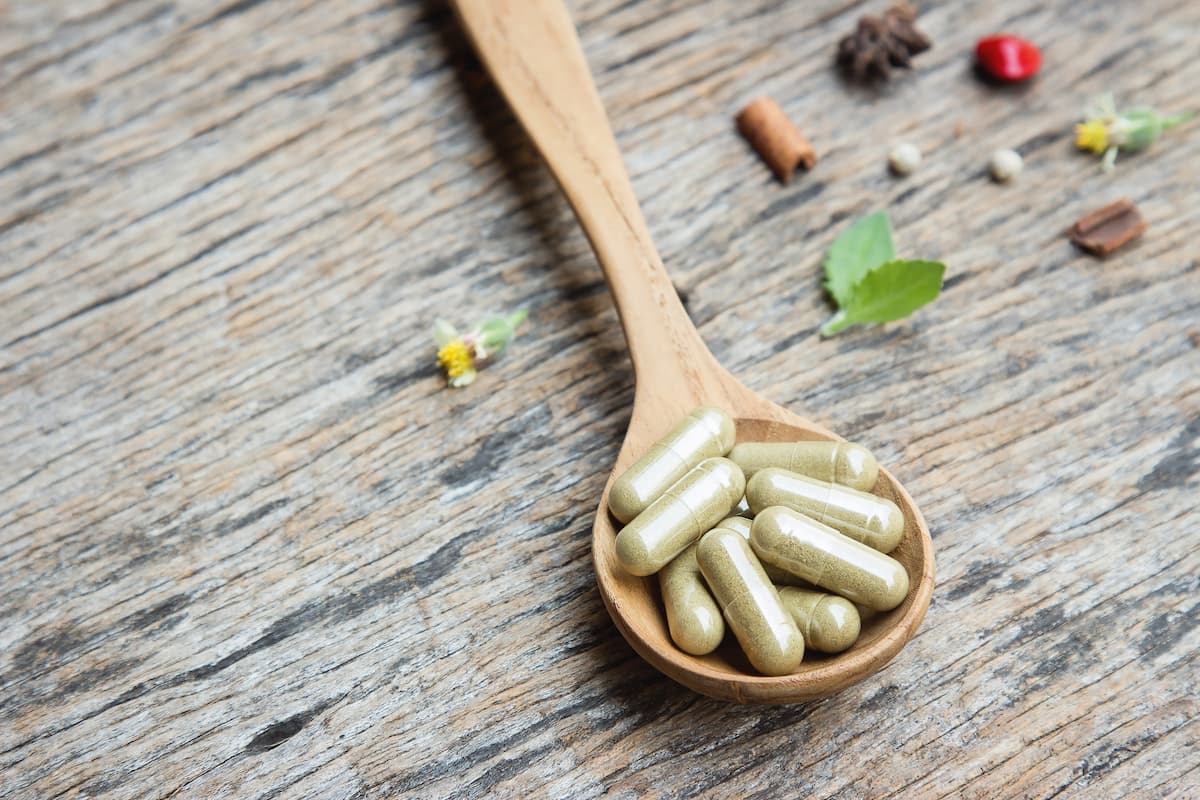
Ashwagandha affects thyroid hormone levels. Find out if you can use it.
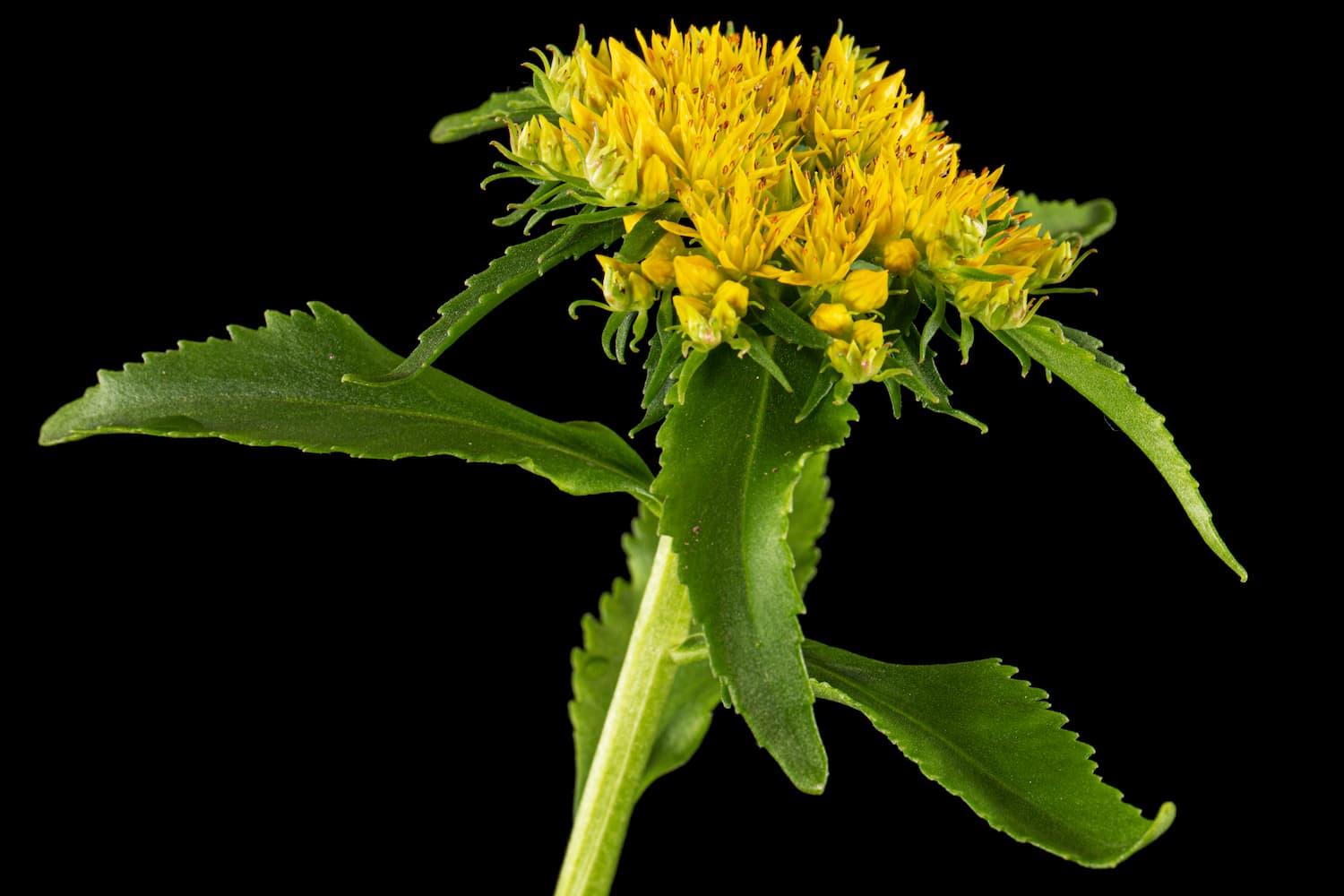
See how mountain pintail can affect your wellbeing.

Check out the opinions of doctors and other professionals about ashwagandha. Also find out what people on the forum think about it.
